10 Nigerian Wedding Traditions & Customs
10 Nigerian Wedding Traditions & Customs
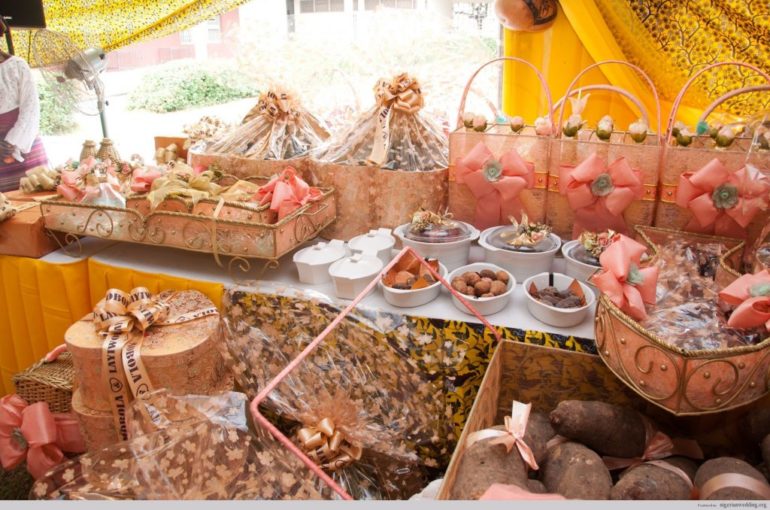
10 Nigerian Wedding Traditions & Customs We Love!
Nigerian wedding traditions and customs are colourful & festive, and always, always filled to the brim with loud enthusiastic music, singing, an array of food in many varieties, and large group dancing!
Shola Ade of Designer Wedding Planner Weddings and Events in London shares what she learned when planning a Nigerian wedding for their Nigerian clients.
If you’re planning a Nigerian wedding or a wedding that contains Nigerian elements, here are ten wedding traditions and customs you really do need to know:
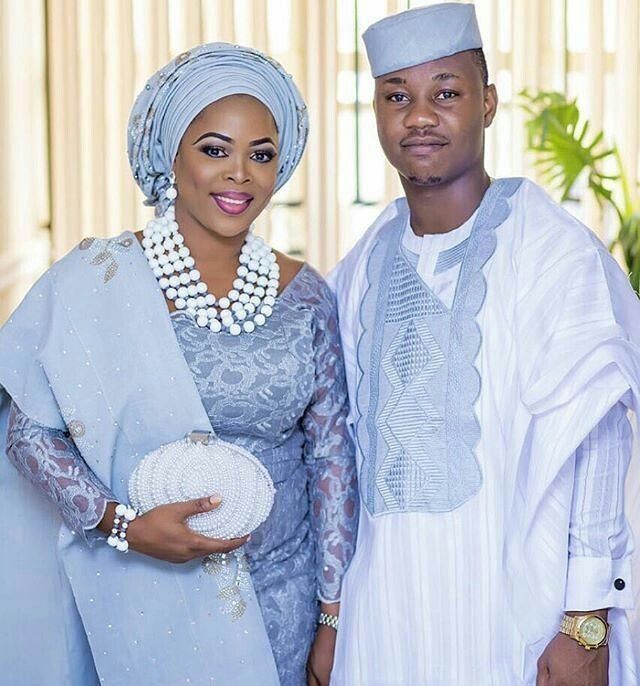
Dowry
Before the ceremony can begin, the bride and her family will typically provide the groom and his family with a list of dowry requirements.
In other words, the groom and his family are required to provide the bride and her family with all the items on the list before the engagement can be official.
The dowry can contain anything from fruit, candy, and clothes to a new car. If the groom is unable to provide these items, the engagement really cannot proceed.
Items Requested By The Bride’s Family:
Some of the items demanded by the bride’s family include; bag(s) of sugar, bag(s) of rice, alligator pepper, balls of bitter kola, a bag of salt, kola nuts.
Non-edible items will also include a brand new much prized Bible and may also include expensive materials like lace, several pairs of shoes, wristwatch, a gold engagement ring and head tie. Everything is so well presented and displayed for everyone to see and
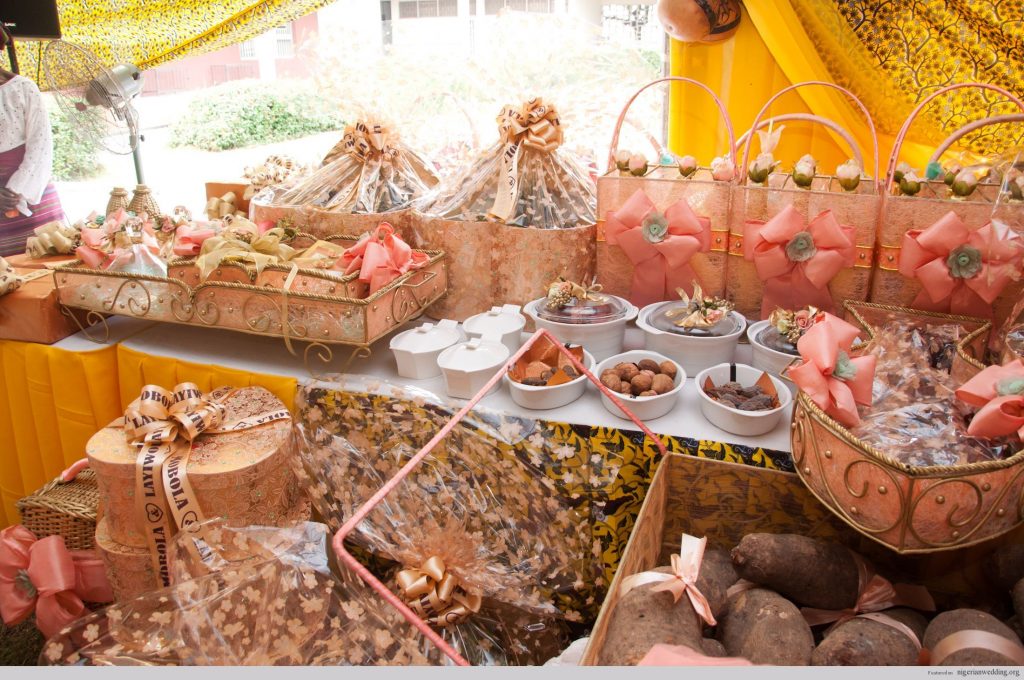
Double Ceremonies
Most Nigerian couples or Nigerian fusion weddings will have two wedding ceremonies – the first is cultural and contains most of the traditional Nigerian elements. The second is typically a religious ceremony or the ‘White Wedding’.
Each ceremony is preceded over by a separate officiant.
No Guest List
Traditionally, Nigerian weddings will not have a guest list. The entire community is welcome and an abundance of food and drink is available in case you end up with your entire community in attendance.
Quite often, if you hear that a distant person who you may know their parents are getting married, you will feel that it would be rude not to attend the wedding and spread the love.
When next a friend invites you to a Yoruba wedding, make yourself available because a lot of people even attend un-invited due to the food, fun and music.
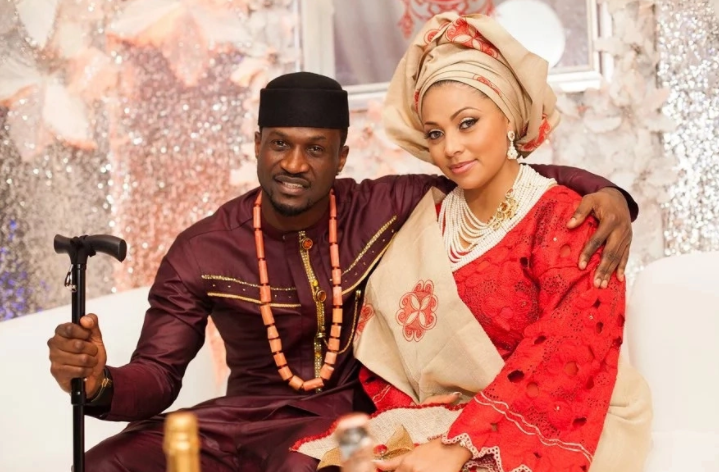
The Alaga
An Alaga, traditionally a woman, is a Nigerian wedding ceremony officiant, or emcee, whose job is to heckle the groom and his friends as entertainment for the wedding guests.
It’s a pure delight to watch in really good Alaga in action.
Weaved with loud singing, chanting, dancing, music, and lots of laughter, the Alaga creates a live theatre of the wedding ceremony traditions that keep people completely engaged during the hour-long ceremony.

The Bride:
The bride is then heralded into the venue of the ceremony followed by her friends, all dressed in traditional attires like Buba ati Iro, which is the blouse and long skirt, as they join her in a boisterous dance down the hall.
The bride also goes through a few protocols but money is only given to her and not taken from her as in the case of the groom.
She is introduced to the groom’s family before she takes her place beside the groom.
At this stage, they may consider themselves married. The wife displays some wifely traits by feeding the groom. If you would like to contact us to support you with your Nigerian Traditional Wedding.
The Gele
Nigerian brides wear a traditional, ornate headpiece called a Gele. The bridesmaids and families also follow suit and wear a Gele to honour the cultural traditions of the day.
The wedding party typically sources their attire, including the Gele (for the ladies) and Fila (for the groom) from a seamstress who makes everything custom to coordinate.
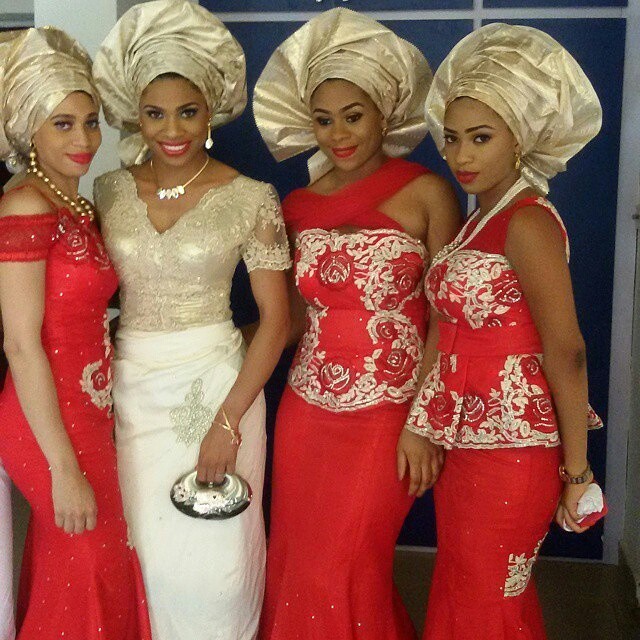
Aso-Ebi
Aso-Ebi directly translates to “family clothes”. Nigerian couples choose what their guests wear by assigning a colour for the bride’s family and a separate colour for the groom’s family.
At the wedding, the couple asked the bride’s family to wear pink and the groom’s family to wear white. The main family will also have their colours chosen and often both sets of parents will wear the same material and the same colour to show the unity and happiness of the couple coming together.
No Yoruba wedding happens without Aso-Ebi where family and friends wearing designated, uniform colourful attires. This part is actually what lots of brides, their mothers and her friends look forward to.
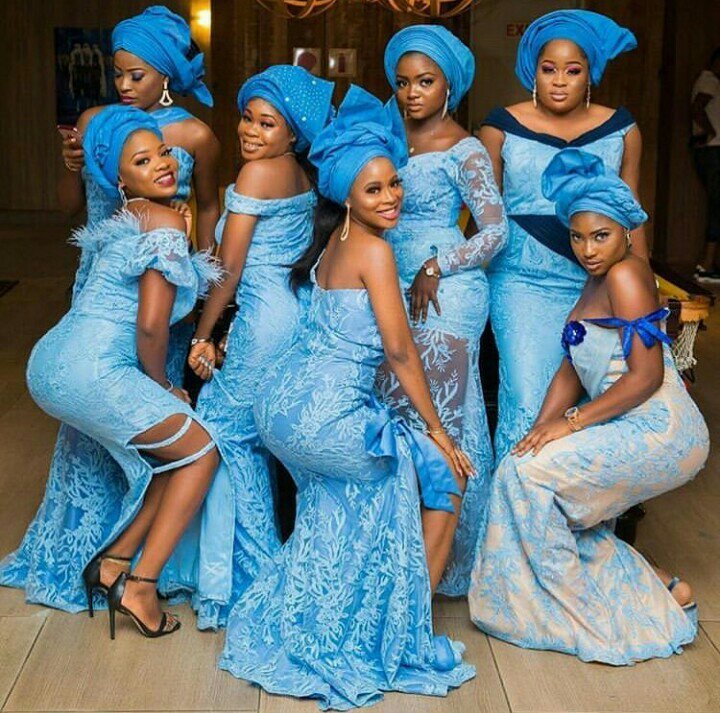
Proposal and Acceptance
In advance of the wedding, a Nigerian groom is required to write a letter of intent to the bride’s parents. This letter is symbolic of a proposal and is presented to the bride’s family.
The letter is typically read aloud by a member of the bride’s family, after which, acceptance is given to the groom on behalf of the bride’s family. The letter if often framed and in an ornate presentation. It is a keepsake and it is read out loud to the gathered guests as it sets out the request of the groom to find himself his heart’s desire and marry his chosen bride.
Prostration
During the ceremony, it is essential for the groom to prostrate. The groom, typically along with his groomsmen, will lay flat on the ground with their faces down at the feet of the bride’s family.
This is symbolic of the groom honouring the bride’s family for raising his future wife to the stage where she is able to marry. Throughout the ceremony, the groom has to earn the love and honour of the bride’s family and this is one way he does it.
The groom and groomsmen also prostrate at the feet of the groom’s parents as a sign of respect. It really is a show and a great occasion to be present at.
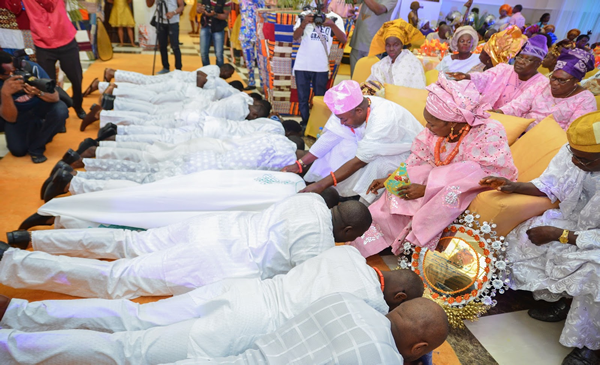
Wedding Cake
During a cultural Nigerian wedding ceremony, the bride and groom cut a cake! This tradition is different from what we’re used to seeing at other weddings when the cake is typically cut during the reception. The cake is cut during the Nigerian ceremony to symbolize rice and sweet happiness.
Food
Food for the party after the ceremony is typically provided by the family of the bride. Traditionally, the entire meal is prepared by the bride’s mom and her family, in her home kitchen.
Alternatively, couples can secure the services of a Nigerian caterer who can make an authentic, home-cooked meal for guests to enjoy while they wander on and off the dance floor.
‘The Trad’ as it is often called is a super affair and the event can cost almost as much as the wedding itself.
Often couples will permit their parents to organise the Traditional wedding as a customary event, and then they will have the white wedding they wish. With this in mind, the Traditional wedding may then have more guests attending and then the couple can limit the numbers who attend the main wedding.
Most importantly, Nigerian weddings are fun! You will not be disappointed if given the opportunity to attend this meaningful cultural event!


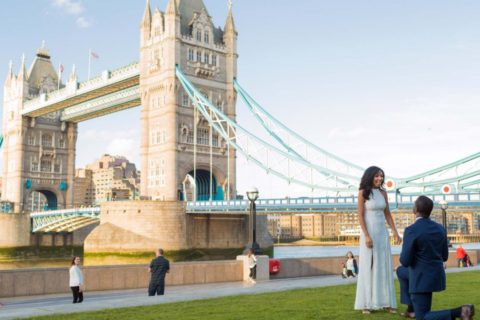
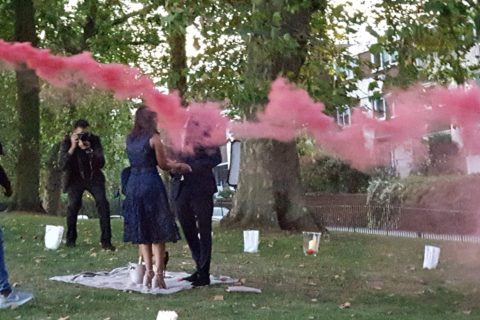


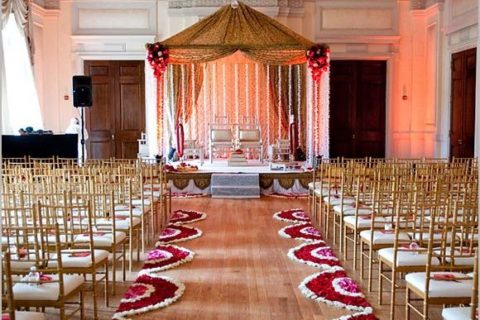



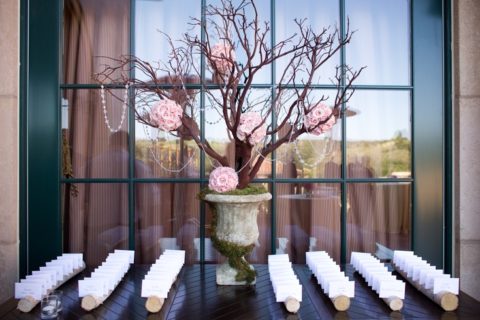

You must be logged in to post a comment.